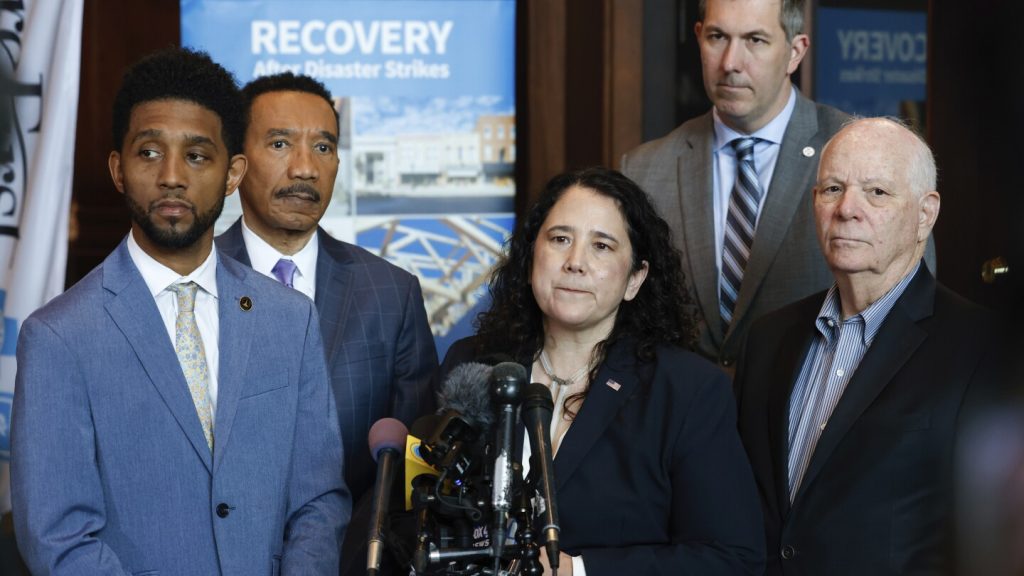The collapse of Baltimore’s Francis Scott Key Bridge has led to significant economic challenges for the city, particularly for businesses involved in transportation and supply chain logistics. The U.S. Small Business Administration has received 500 applications for loans intended to help these small businesses stay afloat during the closure of Baltimore’s vital port. The program offers low-interest loans of up to $2 million and aims to provide financial relief to affected companies. The closure of the port has caused logistical issues for shipping along the East Coast, with the port handling significant amounts of cars and farm equipment.
In response to the economic impact of the bridge collapse, the Maryland Senate unanimously approved a bill authorizing the governor to use the state’s rainy day fund to assist unemployed port employees. The bill also allows the governor to use state reserves to support small businesses, prevent layoffs, and encourage companies to return to Baltimore once the port reopens. Wallenius Wilhelmsen, a Norwegian shipping firm with a hub in Baltimore, estimates losses between $5 million and $10 million as a result of the port closure. President Joe Biden is expected to visit the collapse site to assess the situation and provide support.
The collapse of the Key Bridge occurred on March 26, after being struck by the cargo ship Dali, which lost power shortly after leaving Baltimore bound for Sri Lanka. The impact of the collapse resulted in the deaths of six roadwork crew members who were unable to escape in time. Efforts are ongoing to clear the wreckage, recover the bodies of the victims, and determine the extent of the damage to the bridge and the surrounding area. Divers are using sonar to map the wreckage located at the bottom of the Patapsco River in 50 feet of water, while a floating crane named “Chessy” is assisting with the salvage operation.
The closure of Baltimore’s port has had far-reaching effects on the local economy and supply chain, with businesses facing significant financial challenges as a result. The loan program initiated by the U.S. Small Business Administration aims to provide relief to affected companies and help them navigate the difficult period of the port closure. The Maryland Senate’s approval of a bill to support unemployed port employees and assist small businesses demonstrates a commitment to mitigating the economic impact of the bridge collapse. Efforts are ongoing to assess the damage, recover the bodies of the victims, and ultimately reopen the port to resume maritime operations.
President Joe Biden’s upcoming visit to the collapse site highlights the severity of the situation and the need for federal support in addressing the aftermath of the bridge collapse. The collaborative efforts of federal, state, and local authorities, as well as businesses and community members, are crucial in navigating the challenges posed by the closure of Baltimore’s port. With the support of government assistance programs and community initiatives, affected businesses and employees can hopefully recover from the economic impact of the disaster and work towards rebuilding the local economy. The recovery process will require ongoing coordination and support to ensure the long-term sustainability and resilience of Baltimore’s port and the businesses that rely on its operations.


